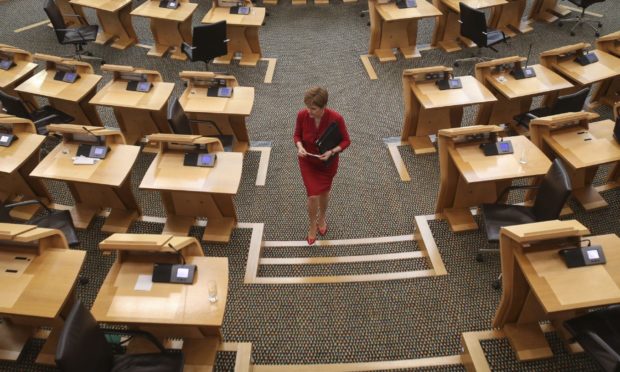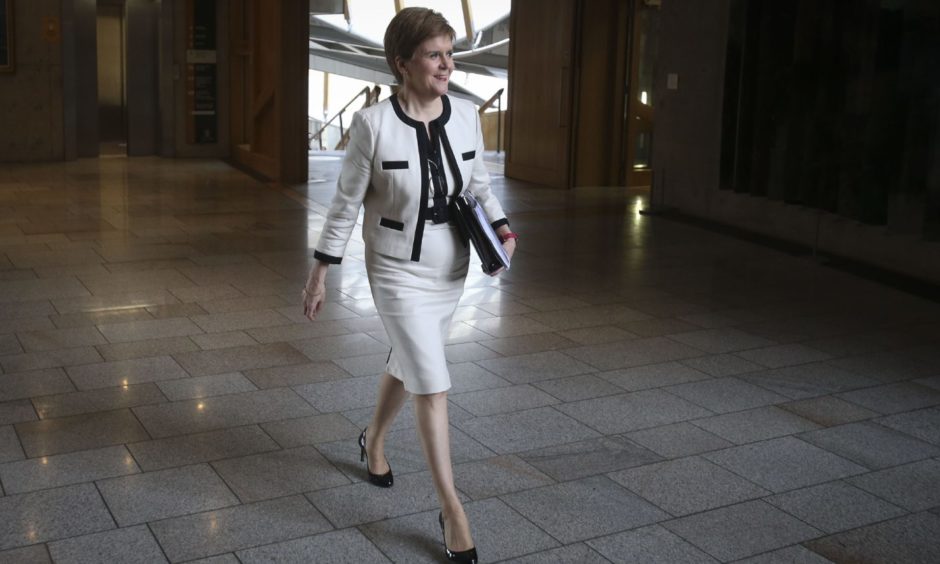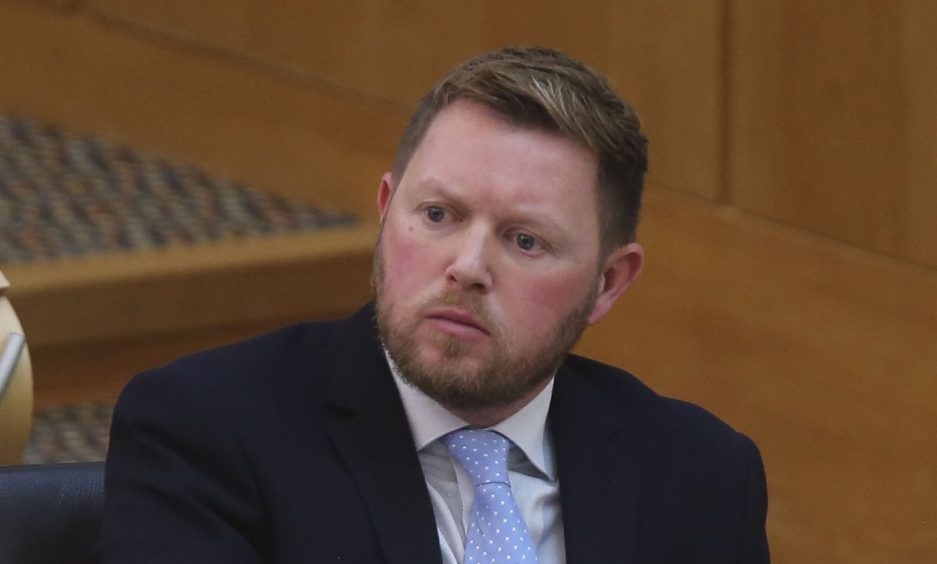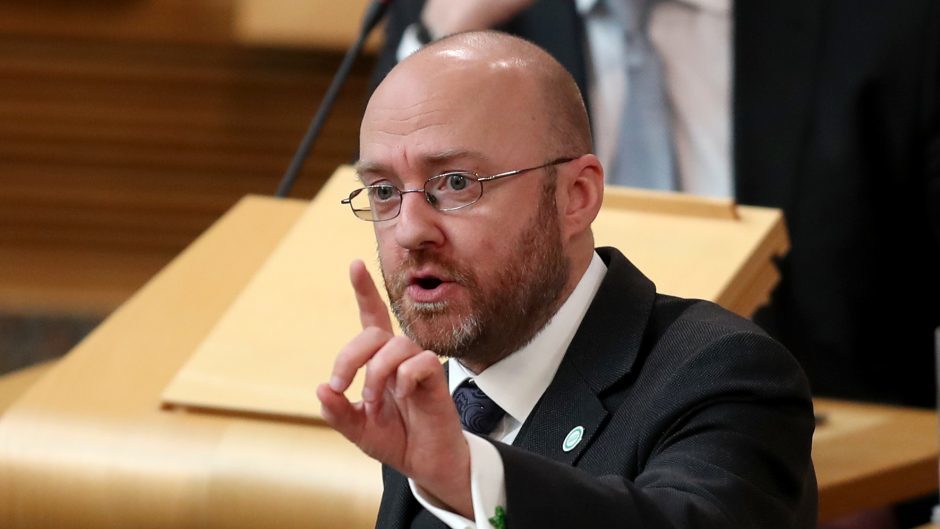Nicola Sturgeon will consider giving MSPs the opportunity to debate and vote on new coronavirus restrictions before they come into force in a bid to improve parliamentary scrutiny.
The Scottish Government passed legislation this year granting it emergency powers to deal with the Covid-19 pandemic but the first minister has faced criticism over her handling of some aspects of the crisis.
MPs will be asked to extend the UK Government’s own emergency Coronavirus Act at Westminster on Wednesday but there is growing support for an amendment to the law that would see the House of Commons vote on future restrictions in England.
Ms Sturgeon was asked during her daily briefing on Monday whether she believes similar powers should be extended to elected members at the Scottish Parliament, to allow them to run the rule over her own coronavirus measures.
Holyrood’s Covid-19 Committee already scrutinises rules and restrictions set out by the Scottish Government to deal with the pandemic but the first minister indicated she is open to discussing ways to further expose her plans to parliamentary scrutiny.
She said: “In a situation that is fast moving, where we often have to move really quickly to put restrictions in place, of course we want to maximise parliamentary involvement and scrutiny. So we will consider on an ongoing basis the best way of doing that.
“Right now, parliamentary committees can sit on any day to scrutinise any proposals that are put forward, they’re not limited to just sitting on parliamentary sitting days.
“We do, particularly six months in, keep this under review and we will want to talk to parties across the parliament about how we increase the scrutiny and have as much of that scrutiny as early as possible, albeit recognising that sometimes, because the virus doesn’t wait for parliamentary scrutiny, we have to act quickly.”
The first minister has faced criticism over a number of key issues relating to the pandemic, including the transfer of hospital patients into care homes, exam grades, and, most recently, virus outbreaks linked to university halls.
Opposition parties have repeatedly raised concerns over the lack of immediate scrutiny for important decisions, with policy decisions often being announced during the Scottish Government’s daily briefings.
Tory education spokesman Jamie Greene claimed the issue with student accommodation was evidence that future regulations should be announced in the Scottish Parliament, “where MSPs can challenge the flaws straight away”.
He said the “lack of immediate scrutiny” over the Scottish Government’s planned restrictions had “clearly made this situation worse”.
Scottish Greens co-leader Patrick Harvie also argued that greater scrutiny may have helped in the Scottish Government’s handling of the pandemic.
He said: “The emergency coronavirus legislation provides ministers with wide-ranging powers and while we accept that there are critical moments when the rules may have to be changed on very short notice, we should maximise scrutiny where possible.
“It’s essential that government works with parliament to provide both the time and the information for that scrutiny.
“Such transparency may help avoid the current contradictions and confusion that has arisen throughout this crisis.”
Sir Graham Brady, who is chairman of the influential 1922 Committee of Conservative backbenchers at Westminster, has the support of around 50 Conservative MPs and the DUP for his Coronavirus Act amendment.
Labour justice secretary David Lammy said he is “very sympathetic” to the amendment but would not say whether he will vote for it. Liberal Democrat leader Sir Ed Davey said he “almost certainly” will, and the SNP are undecided.
While the numbers could be in place to overturn Boris Johnson’s majority, the bigger question may be whether the amendment is selected by the Speaker at all. Some suggest it is unlikely but the Speaker does consider the breadth of support for an amendment.



